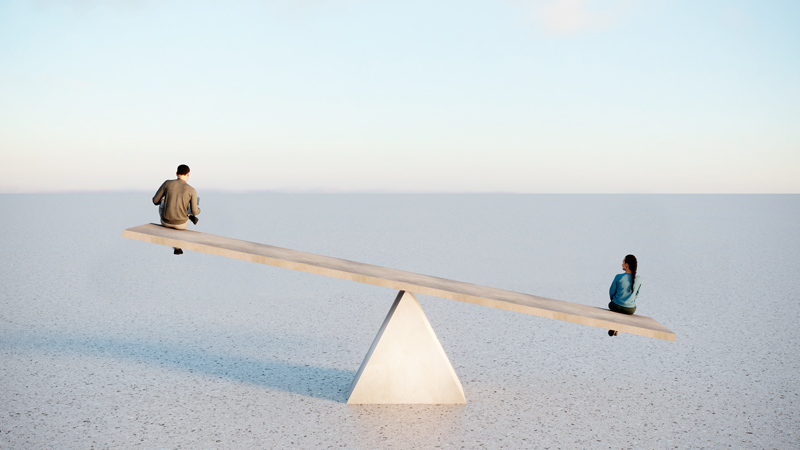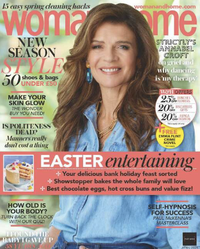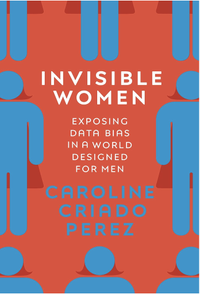Why is society still failing women?
A look at the inequalities that affect us and how we can level the playing field

Like many w&h readers, I was born in the 1960s and grew up in the 1970s, coming of age on the crest of the Women’s Liberation movement. We no longer wanted to be valued or judged primarily on the way we looked – we were going to forge a better society.
We demanded equality, including fair pay and the ability to make choices about our own bodies. We had the pill, didn’t need to be married to start a family or ask a man’s permission for a mortgage. There was less stigma attached to divorce, and women were starting to speak up and get help with domestic violence. We truly believed the world was there for the taking. But things didn’t turn out how we had planned.
Today, in 2024, women face many of the same battles. The challenges – of equal pay; balancing motherhood, home and career; abuse, misogyny and personal safety – have not gone away.
Subscribe to woman&home magazine – for less than £4 per month
This article original featured in woman&home magazine. Subscribe today for more inspirational stories, and get a £10 Vex Gift Card – valid at over 100 different retailers.
The threat of male violence
When 33-year-old Sarah Everard was raped and killed in 2021, we were reminded, tragically, that walking home at night is risky for women. Compounding the shock that the crime was committed by a serving police officer, two women were later arrested and handcuffed at one of the vigils, and Scotland Yard had to apologise and pay damages for its heavy handling of the incident.
Later that year, two police officers guarding a murder scene were sentenced for sharing dehumanising pictures on WhatsApp of sisters Bibaa Henry and Nicole Smallman, who had been brutally stabbed in a park in 2020. In December 2023, a man was jailed for raping a 20-year-old woman on a Tube train in front of other passengers. The list is, sadly, endless.
Currently, one in four women will be victims of domestic violence during their lifetime, with two women dying as a result of abuse every week. And there is a clear need for domestic violence sentencing to be higher.
The views of Andrew Tate, a self-proclaimed misogynist influencer, have been a savage wake-up call. He’s currently facing trial in Romania charged with rape, human trafficking and sexploitation – charges he denies. A report by Internet Matters, which offers child internet safety advice, found that a quarter (23%) of teenage boys aged 15-16 held a favourable view of Tate. Possibly more shocking was that over half of 25-34-year-old fathers felt the same way.
Sign up to our free daily email for the latest royal and entertainment news, interesting opinion, expert advice on styling and beauty trends, and no-nonsense guides to the health and wellness questions you want answered.
Female health
Recent statistics suggest that only 2 percent of medical research funding is spent on pregnancy, childbirth and female reproductive health. Women are being underserved despite one in three women reporting a reproductive or gynaecological health problem.
The challenges of menopause is just one area that has, until recently, been ignored. One in four women experiencing menopause is reported to have thought of leaving her job due to symptoms. We live longer than men, yet many women spend more of their lives in poor health.
On a positive note, our first-ever Menopause Employment Champion was appointed in March 2023. Helen Tomlinson took on the voluntary role, calling on more employers to develop menopause policies. Alongside her, the Women’s Health Ambassador Dame Lesley Regan is determined to action positive change with a 10-year strategy. ‘We need to make it as easy as possible for women to access the services they need, to keep girls in school and women in the workplace, ensuring every woman has the opportunity to live her life to her fullest potential,’ she says.
... and safety
Journalist Caroline Criado Perez, author of Invisible Women, discovered that in research, the male body is the standard. Crash test dummies used to test car safety, for example, are modelled on an average man rather than an average woman, even though we are not just a physically smaller version. Women’s breasts or pregnant bodies were never part of the conversation – it’s why women are 73% more likely to be injured in frontal road collisions.
Invisible Women: Exposing Data Bias in a World Designed for Men | £4.99 Kindle edition
A Sunday Times bestseller, Invisible Women reveals the gender data gap in our knowledge that is at the root of discrimination against women. A powerful, eye-opening analysis of gender discrimination.
The inequality of opportunity
Less than a fifth of engineering, technology and computing undergraduates are women; with maths, it’s just over a third. The findings of the Prince’s Trust NatWest Youth Index 2023 suggest young women are more likely to feel worried about their future prospects to achieve their life goals, and have experienced a decline in their confidence and wellbeing since 2021. Two-thirds of young women agreed the future felt frightening for their generation compared to 52% of young men.
Chrissie Rucker OBE, founder of The White Company and founding gold patron of the #ChangeAGirlsLife campaign for the Prince’s Trust, explains, ‘Young women in the UK are still disproportionately disadvantaged compared to their male peers.'
Female representation in UK politics has increased but men remain over-represented, especially in more senior positions. Currently, less than a third of MPs are women. And when you look at UK-based FTSE 100 companies, just 9% of CEOs are women, which proves the glass ceiling is still intact.
Women's pay is lagging
The latest figures for the wealth divide show major inequalities between men’s and women’s salaries. The Gender Pensions Gap, which measures the difference in income for men and women, increased to 37.9% in 2019-2020.
Equal Pay Day (EPD) last year fell on 22 November 2023 – the date when, based on male and female average earnings, women start working for free until the end of the year.
Louise Court is a British journalist, who was previously the Editorial Director of Hearst UK and Editor in Chief of Cosmopolitan.

